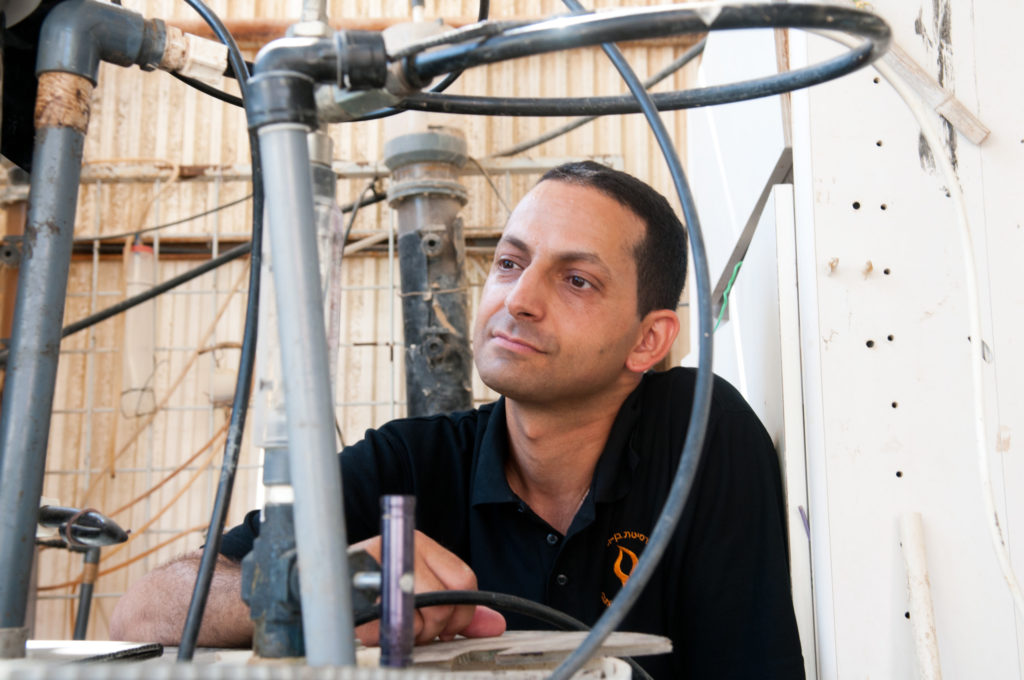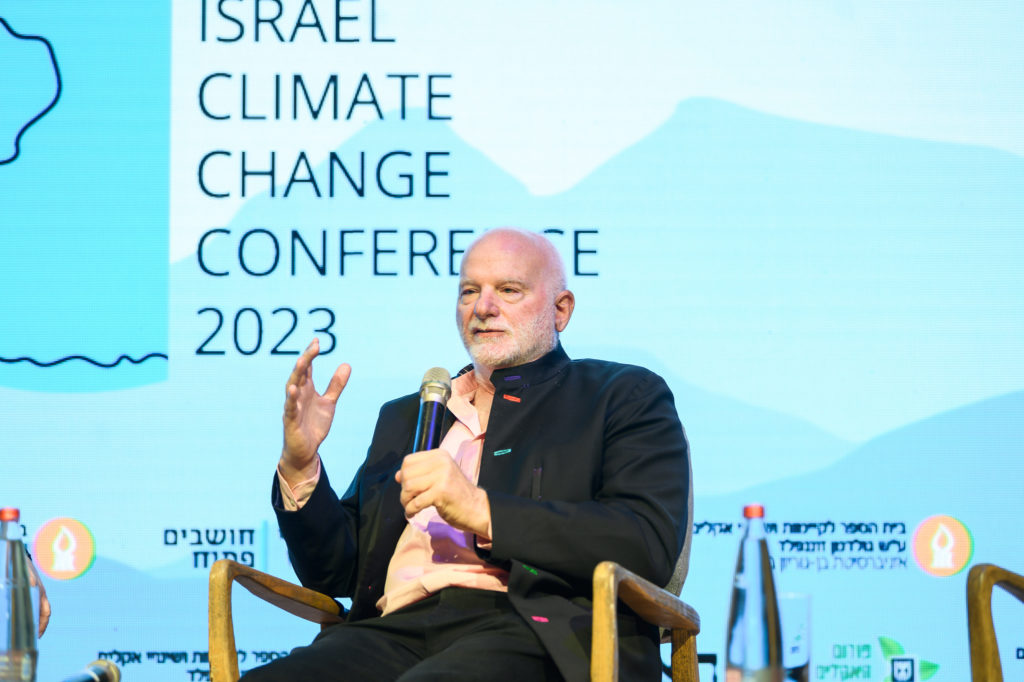
New Membranes Remove Viruses From Drinking Water
New Membranes Remove Viruses From Drinking Water
April 19, 2017
Desert & Water Research, Press Releases
Researchers from Ben-Gurion University of the Negev (BGU) and the University of Illinois at Urbana-Champaign (UIUC) have developed novel ultrafiltration membranes that significantly improve the virus-removal process from treated municipal wastewater used for drinking in water-scarce cities.
Current membrane filtration methods require intensive energy to adequately remove pathogenic viruses without using chemicals like chlorine, which can contaminate the water with disinfection byproducts. Researchers at UIUC and BGU collaborated on the new approach for virus pathogen removal, which was published in the current issue of Water Research.
“This is an urgent matter of public safety,” the researchers say. “Insufficient removal of human Adenovirus in municipal wastewater, for example, has been detected as a contaminant in U.S. drinking water sources, including the Great Lakes and worldwide.”
The norovirus, which can cause nausea, vomiting and diarrhea, is the most common cause of viral gastroenteritis in humans, and is estimated to be the second leading cause of gastroenteritis-associated mortality. Human adenoviruses can cause a wide range of illnesses that include the common cold, sore throat (pharyngitis), bronchitis, pneumonia, diarrhea, pink eye (conjunctivitis), fever, bladder inflammation or infection (cystitis), inflammation of the stomach and intestines (gastroenteritis), and neurological disease.
In the study, Prof. Moshe Herzberg of the Department of Desalination and Water Treatment in the Zuckerberg Institute for Water Research at BGU and his group grafted a special hydrogel coating onto a commercial ultrafiltration membrane. The “zwitterionic polymer hydrogel” repels the viruses from approaching and passing through the membrane.
It contains both positive and negative charges and improves efficiency by weakening virus accumulation on the modified filter surface. The result was a significantly higher rate of removal of waterborne viruses, including human norovirus and adenovirus.
“Utilizing a simple graft-polymerization of commercialized membranes to make virus removal more comprehensive is a promising development for controlling filtration of pathogens in potable water reuse,” says Prof. Nguyen, Department of Chemical Engineering, UIUC.
Prof. Herzberg and his student, Maria Piatkovsky, worked on this groundbreaking research with Prof. Thanh H. Nguyen and her student, Ruiqing Lu, Department of Chemical Engineering, UIUC as well as Professor Dr. Mathias Ulbricht, chair of Technical Chemistry II, University Duisburg-Essen, Germany.
The project was supported by the U.S. Environmental Protection Agency (EPA grant RD83582201-0) and the German-Israeli Water Technology Cooperation Program, which is funded by the Ministry of Science & Technology of Israel and the Federal Ministry of Education and Research of Germany (BMBF-MOST, BMBF grant # 02WA1261B, MOST grant # GR-2394).
Improvement of virus removal using ultrafiltration membranes modified with grafted zwitterionic polymer hydrogels, Lu, R., Zhang, C., Piatkovsky, M., Ulbricht, M., Herzberg, M., Nguyen, T.H.,
Water Research (2017), doi: 10.1016/j.watres.2017.03.023.
ABOUT AMERICANS FOR BEN-GURION UNIVERSITY
By supporting a world-class academic institution that not only nurtures the Negev, but also shares its expertise locally and globally, Americans for Ben-Gurion University engages a community of Americans who are committed to improving the world. David Ben-Gurion envisioned that Israel’s future would be forged in the Negev. The cutting-edge research carried out at Ben-Gurion University drives that vision by sustaining a desert Silicon Valley, with the “Stanford of the Negev” at its center. The Americans for Ben-Gurion University movement supports a 21st century unifying vision for Israel by rallying around BGU’s remarkable work and role as an apolitical beacon of light in the Negev desert.
About Ben-Gurion University of the Negev
Ben-Gurion University of the Negev embraces the endless potential we have as individuals and as a commonality to adapt and to thrive in changing environments. Inspired by our location in the desert, we aim to discover, to create, and to develop solutions to dynamic challenges, to pose questions that have yet to be asked, and to push beyond the boundaries of the commonly accepted and possible.
We are proud to be a central force for inclusion, diversity and innovation in Israel, and we strive to extend the Negev’s potential and our entrepreneurial spirit throughout the world. For example, the multi-disciplinary School for Sustainability and Climate Change at BGU leverages over 50 years of expertise on living and thriving in the desert into scalable solutions for people everywhere.
BGU at a glance:
20,000 students | 800 senior faculty | 3 campuses | 6 faculties: humanities & social sciences, health sciences, engineering sciences, natural sciences, business & management, and desert research.
For all press inquiries, please contact:
James Fattal, J Cubed Communications
516.289.1496




